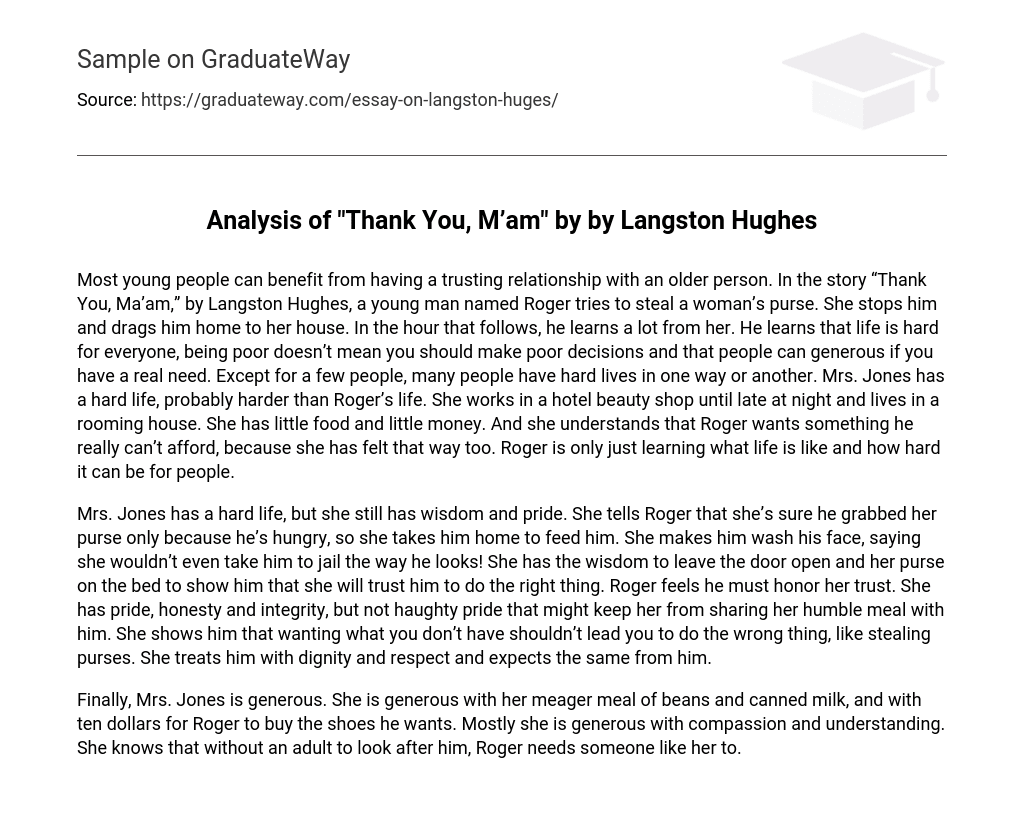In the story “Thank You, Ma’am,” by Langston Hughes, a young man named Roger attempts to steal a woman’s purse. However, she stops him and takes him to her house. Throughout the next hour, Roger learns various life lessons from her. These lessons include the fact that life is challenging for everyone, being impoverished does not justify making poor choices, and people can be generous if there is a genuine need. Despite a few exceptions, many individuals experience difficult lives in some form or another. Mrs. Jones, the woman who caught Roger, likely leads a harder life than him. She works late hours at a beauty shop in a hotel and resides in a rooming house with limited food and money. She empathizes with Roger because she has also desired something she couldn’t afford. This experience serves as an eye-opener for Roger, as he starts comprehending the hardships people face in life.
Despite her difficult life, Mrs. Jones possesses both wisdom and pride. When she suspects Roger of stealing her purse out of hunger, she chooses to take him home and provide him with a meal. In doing so, Mrs. Jones emphasizes the importance of maintaining cleanliness and presents Roger with an opportunity to prove himself trustworthy. Despite her own sense of pride, she does not let it hinder her from sharing her modest meal with him. Through her actions, she conveys the message that desire should never justify engaging in wrongful behavior, such as theft. Mrs. Jones treats Roger with dignity and respect, expecting the same in return.
Finally, Mrs. Jones demonstrates her generosity in various ways. She is generous when it comes to sharing her modest meal of beans and canned milk. Additionally, she generously provides Roger with ten dollars so he can purchase the shoes he desires. However, her most prominent form of generosity lies in her compassionate and understanding nature. Mrs. Jones recognizes that due to his lack of adult supervision, Roger is in need of someone like her to support and care for him.





